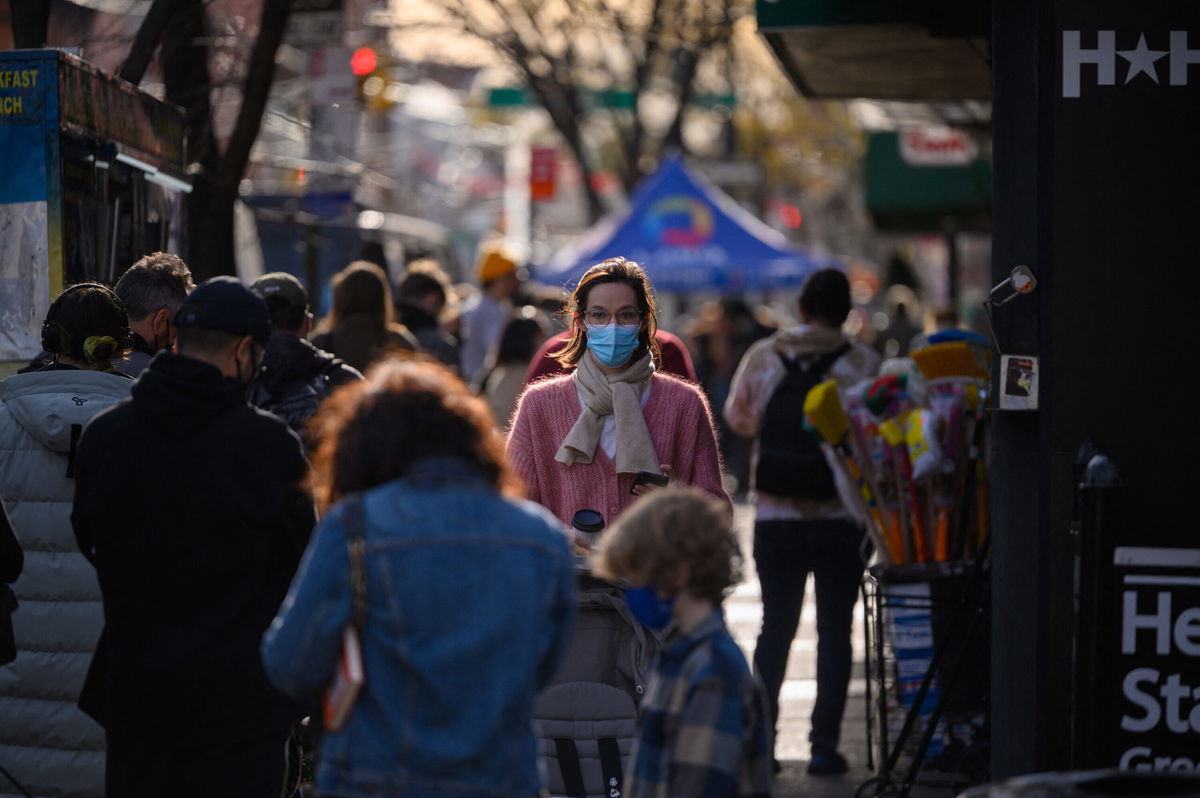What the US can expect next from the Covid surge, according to an expert

The Omicron variant has sent cases of Covid-19 surging once again
By Madeline Holcombe, CNN
The Omicron variant has sent cases of Covid-19 surging once again, and many businesses, workplaces and schools have reintroduced restrictions to curb the spread.
Even for those who have been cautious, the cycle of hope for a return to normalcy followed by the disappointment of rising cases has become exasperating.
Part of the problem is the 37.8% of Americans who still are not fully vaccinated against the virus, according to the US Centers for Disease Control and Prevention.
But there is hope on the horizon. CNN spoke to Dr. Jonathan Reiner, professor of medicine and surgery at George Washington University, who talked about what the US can expect next from the pandemic and why we need to continue to work hard to keep the virus in check.
This conversation has been lightly edited and condensed for clarity.
CNN: What does the health community think the future of Covid-19 is going to look like?
Dr. Jonathan Reiner: In the short term, I think January is going to be a difficult month, and we’re essentially in a race to see which happens first — whether the Omicron surge peaks or whether we deplete our ability to care for folks in hospitals. Our hospitals are filled with patients, and at the same time staff are getting ill.
We think the Omicron surge will be relatively short-lived if the experience in South Africa and the experience in the UK is a harbinger of what’s to come in the United States. If you look at the data as of today in London, it does look like cases are starting to decline.
If we continue to follow the UK in the way we have in the past, then I think in some parts of the country, particularly the places where Omicron hit first, we should start to see hopefully a peak sometime in the next couple of weeks.
The near-term is going to be a challenge, and our hospitals are going to continue to fill with patients. We’ll go back to the kind of footing that we were on in the spring of 2020, and then cases will start to drop.
Fortunately, it does appear that the severity of illness in general is a bit lower with Omicron than the other variants, but still the sheer number of people being admitted to the hospital and the number of hospital staff members now getting sick will make the next few weeks very challenging.
CNN: What is the long-term prognosis?
Reiner: There’s reason to believe that once this wave starts to ebb that cases will continue to drop. The question is: Will there be another wave? Will there be another variant that takes hold? That’s unclear.
I think the near-term will be challenging, but we will get through it. Many people are still optimistic that perhaps by spring we will be in a much better place.
CNN: How should people adjust their approach when it comes to work, school, entertainment and travel in the near-term?
Reiner: I think that we are living in the hottest moment of this pandemic. This is the highest viral load this country has ever seen during this pandemic. To pretend that everything is open and we’re going to go about our business makes no sense to me.
(We need to) tell the public that the next few weeks are going to be difficult, but we are going to get through it, and to help us get through it, everyone needs to wear a mask everywhere we go and we want people to work from home whenever they can.
It’s difficult to imagine continuing to pack people into theaters. The notion that bars are open in New York City is just crazy to me. Our leadership has been unwilling to basically tell people that they have to do some hard things.
CNN: Many experts have said the pandemic likely won’t go away completely but will fizzle into a nuisance. Is that still likely?
Reiner: I think eventually that is where it will settle down.
There is technology on the horizon to basically make this go away, and that is called the pan coronavirus vaccine. There are various labs working on this.
There was a proof-of-concept paper that came out of Duke (University) earlier this year that has shown the ability to create a vaccine that is effective against all coronavirus variants current, past and even future. That is where I think hope lies in terms of putting this pandemic away.
Most people expect we are going to have an endemic virus with us for the indefinite future that we have to learn to live with and mitigate its effects. Vaccines will allow us to basically coexist with this virus by preventing us from getting severely ill should we contract it. And then we’ll learn to live with this the same way we learned to live with influenza.
The-CNN-Wire
™ & © 2022 Cable News Network, Inc., a WarnerMedia Company. All rights reserved.